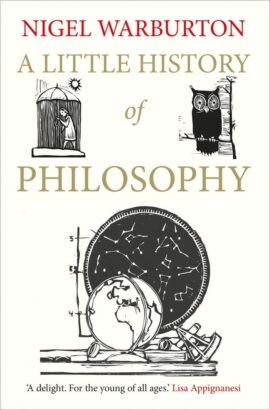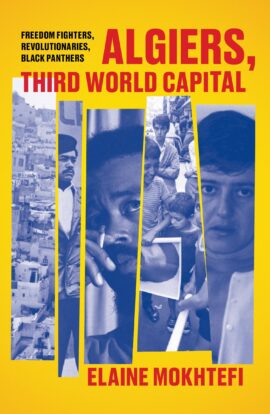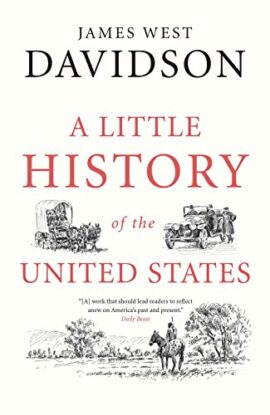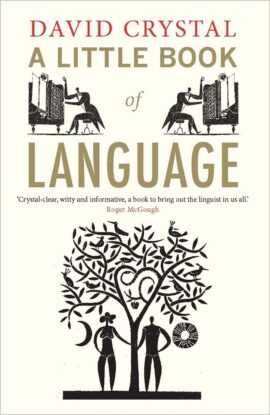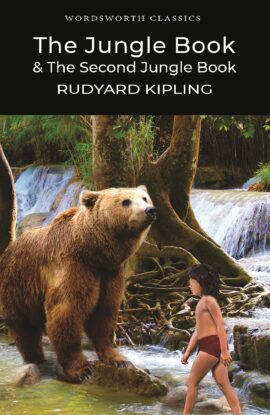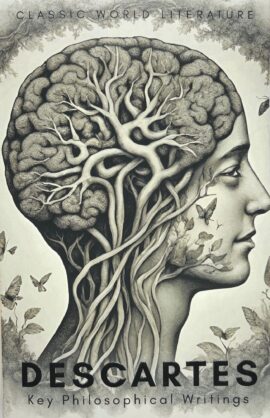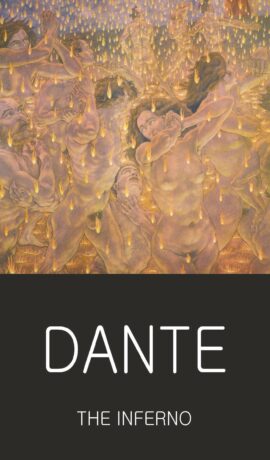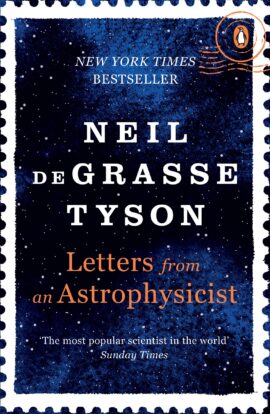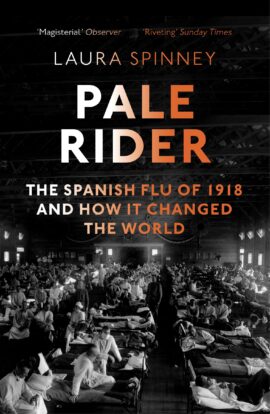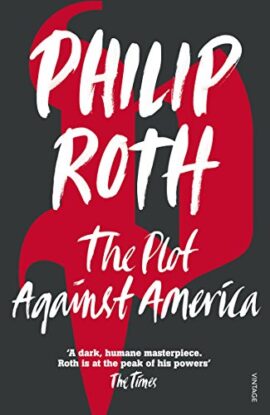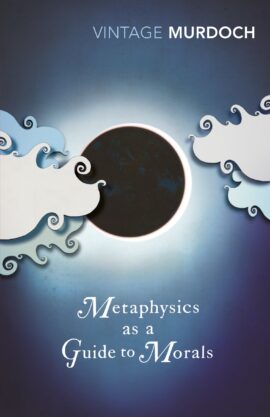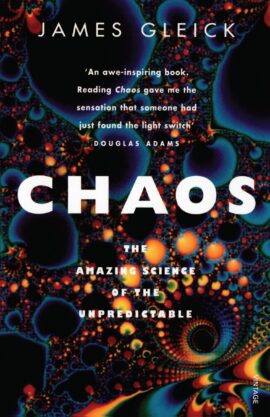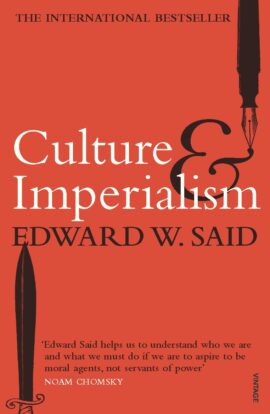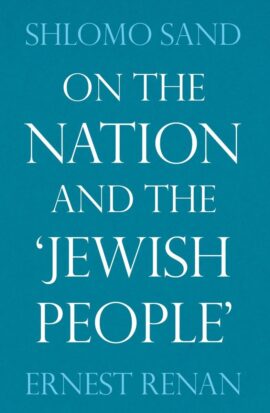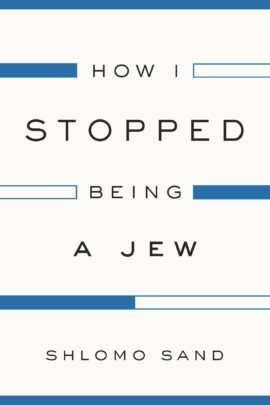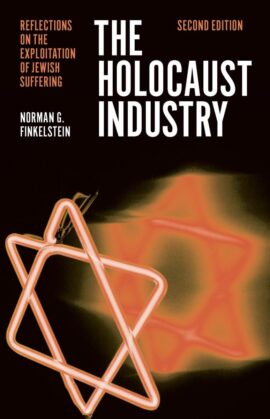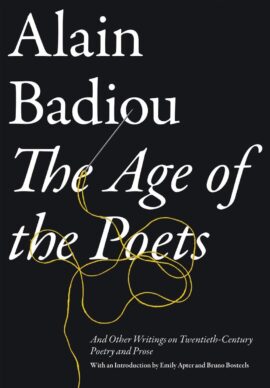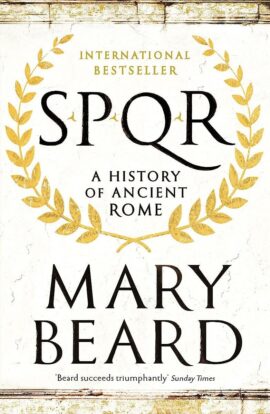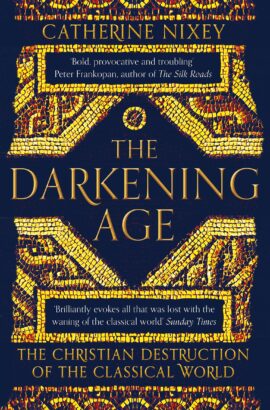Affichage de 1–25 sur 35 résultatsTrié par popularité
A Little History of Philosophy (Little Histories)
For readers of E. H. Gombrich’s A Little History of the World, an equally irresistible volume that brings history’s greatest philosophers to life“A primer in human existence: philosophy has rarely seemed so lucid, so important, so worth doing and so easy to enter into. . . . A wonderful introduction for anyone who’s ever felt curious about almost anything.”—Sarah Bakewell, author of How To Live: A Life of Montaigne in One Question and Twenty Attempts at an AnswerPhilosophy begins with questions about the nature of reality and how we should live. These were the concerns of Socrates, who spent his days in the ancient Athenian marketplace asking awkward questions, disconcerting the people he met by showing them how little they genuinely understood. This engaging book introduces the great thinkers in Western philosophy and explores their most compelling ideas about the world and how best to live in it.In forty brief chapters, Nigel Warburton guides us on a chronological tour of the major ideas in the history of philosophy. He provides interesting and often quirky stories of the lives and deaths of thought-provoking philosophers from Socrates, who chose to die by hemlock poisoning rather than live on without the freedom to think for himself, to Peter Singer, who asks the disquieting philosophical and ethical questions that haunt our own times.Warburton not only makes philosophy accessible, he offers inspiration to think, argue, reason, and ask in the tradition of Socrates. A Little History of Philosophy presents the grand sweep of humanity’s search for philosophical understanding and invites all to join in the discussion.
Algiers, Third World Capital: Freedom Fighters, Revolutionaries, Black Panthers
A fascinating portrait of life with the Black Panthers in Algiers: a story of liberation and radical politicsFollowing the Algerian war for independence and the defeat of France in 1962, Algiers became the liberation capital of the Third World. Elaine Mokhtefi, a young American woman immersed in the struggle and working with leaders of the Algerian Revolution, found a home here. A journalist and translator, she lived among guerrillas, revolutionaries, exiles, and visionaries, witnessing historical political formations and present at the filming of The Battle of Algiers.Mokhtefi crossed paths with some of the era’s brightest stars: Frantz Fanon, Stokely Carmichael, Timothy Leary, Ahmed Ben Bella, Jomo Kenyatta, and Eldridge Cleaver. She was instrumental in the establishment of the International Section of the Black Panther Party in Algiers and close at hand as the group became involved in intrigue, murder, and international hijackings. She traveled with the Panthers and organized Cleaver’s clandestine departure for France. Algiers, Third World Capital is an unforgettable story of an era of passion and promise.
A Little History of the United States (Little Histories)
A fast-paced, character-filled history that brings the unique American saga to life for readers of all ages“This is a little history with a big heart, meant to be savored more than studied, read out loud like poetry, or perhaps sung like a hymn.”—Joseph J. Ellis, author of Founding Brothers“Davidson has written a work that should lead readers to reflect anew on America’s past and present. . . . We can all use not just a good refresher course on American history, but also some good historical thinking on how we might better realize freedom, equality, and E pluribus unum.“—Daily BeastHow did a land and people of such immense diversity come together under a banner of freedom and equality to form one of the most remarkable nations in the world? Everyone from young adults to grandparents will be fascinated by the answers uncovered in James West Davidson’s vividly told A Little History of the United States. In 300 fast-moving pages, Davidson guides his readers through 500 years, from the first contact between the two halves of the world to the rise of America as a superpower in an era of atomic perils and diminishing resources.In short, vivid chapters the book brings to life hundreds of individuals whose stories are part of the larger American story. Pilgrim William Bradford stumbles into an Indian deer trap on his first day in America: Harriet Tubman lets loose a pair of chickens to divert attention from escaping slaves: the toddler Andrew Carnegie, later an ambitious industrial magnate, gobbles his oatmeal with a spoon in each hand. Such stories are riveting in themselves, but they also spark larger questions to ponder about freedom, equality, and unity in the context of a nation that is, and always has been, remarkably divided and diverse.
A Little Book of Language (Little Histories)
Now in paperback, in the tradition of E. H. Gombrich's A Little History of the World, a lively journey through the story of languageWith a language disappearing every two weeks and neologisms springing up almost daily, an understanding of the origins and currency of language has never seemed more relevant. In this charming volume, a narrative history written explicitly for a young audience, expert linguist David Crystal proves why the story of language deserves retelling.From the first words of an infant to the peculiar modern dialect of text messaging, A Little Book of Language ranges widely, revealing language’s myriad intricacies and quirks. In animated fashion, Crystal sheds light on the development of unique linguistic styles, the origins of obscure accents, and the search for the first written word. He discusses the plight of endangered languages, as well as successful cases of linguistic revitalization. Much more than a history, Crystal’s work looks forward to the future of language, exploring the effect of technology on our day-to-day reading, writing, and speech. Through enlightening tables, diagrams, and quizzes, as well as Crystal’s avuncular and entertaining style, A Little Book of Language will reveal the story of language to be a captivating tale for all ages.
India The Beautiful
The Jungle Book introduces Mowgli, the human foundling adopted by a family of wolves. It tells of the enmity between him and the tiger Shere Khan, who killed Mowgli's parents, and of the friendship between the man-cub and Bagheera, the black panther, and Baloo, the sleepy brown bear, who instructs Mowgli in the Laws of the Jungle.The Second Jungle Book contains some of the most thrilling of the Mowgli stories. It includes Red Dog, in which Mowgli forms an unlikely alliance with the python Kaa, How Fear Came and Letting in the Jungle as well as The Spring Running, which brings Mowgli to manhood and the realisation that he must leave Bagheera, Baloo and his other friends for the world of man.
Key Philosophical Writings (Wordsworth Classics of World Literature)
Key Philosophical Writings by Rene Descartes. Rene Descartes (1569-1650), the 'father' of modern philosophy, is without doubt one of the greatest thinkers in history: his genius lies at the core of our contemporary intellectual identity. Breaking with the conventions of his own time and suffering persecution by the Church as a consequence, Descartes in his writings - most of which are philosophical classics - attempted to answer the central questions surrounding the self, God, free-will and knowledge, using the science of thought as opposed to received wisdom based on the tenets of faith. This edition, the most comprehensive one-volume selection of Descartes' works available in English, includes his great essay, Discourse on Method.
The Inferno (Classics of World Literature)
Letters from an Astrophysicist
INSTANT NEW YORK TIMES BESTSELLER!Join the galactic conversation on the biggest issues in the universe, from the 'most popular scientist in the world'‘Don't fear change. Don't fear failure. The only thing to fear is loss of ambition. But if you've got plenty of that, then you have nothing to fear at all’ – Neil deGrasse TysonNeil deGrasse Tyson is arguably the most influential, acclaimed scientist on the planet. As director of the Hayden Planetarium, and host of Cosmos and StarTalk, he has dedicated his life to exploring and explaining the mysteries of the universe.Every year, he receives thousands of letters – from students to prisoners, scientists to priests. Some seek advice, others yearn for inspiration: some are full of despair, others burst with wonder. But they are all searching for understanding, meaning and truth.His replies are by turns wise, funny, and mind-blowing. In this, his most personal book by far, he covers everything from God to the history of science, from aliens to death. He bares his soul – his passions, his doubts, his hopes. The big theme is everywhere in these pages: what is our place in the universe?The result is an awe-inspiring read and an intimate portal into an incredible mind, which reveals the power of the universe to start conversations and inspire curiosity in all of us.
Pale Rider: The Spanish Flu of 1918 and How it Changed the World
With a death toll of between 50 and 100 million people and a global reach, the Spanish flu of 1918–1920 was the greatest human disaster, not only of the twentieth century, but possibly in all of recorded history. And yet, in our popular conception it exists largely as a footnote to World War I.In Pale Rider, Laura Spinney recounts the story of an overlooked pandemic, tracing it from Alaska to Brazil, from Persia to Spain, and from South Africa to Odessa. Telling the story from the point of view of those who lived through it, she shows how the pandemic was shaped by the interaction of a virus and the humans it encountered: and how this devastating natural experiment put both the ingenuity and the vulnerability of humans to the test.Drawing on the latest research in history, virology, epidemiology, psychology, and economics, Laura Spinney narrates a catastrophe that changed humanity for decades to come, and continues to make itself felt today. In the process she demonstrates that the Spanish flu was as significant – if not more so – as two world wars in shaping the modern world: in disrupting, and often permanently altering, global politics, race relations, family structures, and thinking across medicine, religion and the arts.
The Plot Against America
When the renowned aviation hero and rabid isolationist Charles A. Lindbergh defeated Franklin Roosevelt by a landslide in the 1940 presidential election, fear invaded every Jewish household in America. Lindbergh had publicly blamed the Jews for pushing America towards a pointless war with Nazi Germany. Then, upon taking office as the 33rd president of the United States, he also negotiated a cordial 'understanding' with Adolf Hitler. What followed in America is the historical setting for this startling new novel by Pulitzer-prize winner Philip Roth, who recounts what it was like for his Newark family during the menacing years of the Lindbergh presidency, when American citizens who happened to be Jews had every reason to expect the worst. Praise for "The Plot Against America": ""The Plot Against America" is an epic, built - painstakingly, passionately, near perfectly - of the small structures of the particular. A dark, humane masterpiece. Roth is at the peak of his powers" - "The Times". "The word genius doesn't seem excessive - utterly plausible. "The Plot Against America" creates its reality magisterially, in long, fluid sentences that carry you beyond scepticism" - "The Guardian". "Magnificent. Roth is writing the best books of his life. He captures better than anyone the collision of public and private, the intrusion of history into the skin, the pores of every individual alive" - "The Guardian".
Metaphysics as a Guide to Morals
The decline of religion and ever increasing influence of science pose acute ethical issues for us all. Can we reject the literal truth of the Gospels yet still retain a Christian morality? Can we defend any 'moral values' against the constant encroachments of technology? Indeed, are we in danger of losing most of the qualities which make us truly human? Here, drawing on a novelist's insight into art, literature and abnormal psychology, Iris Murdoch conducts an ongoing debate with major writers, thinkers and theologians—from Augustine to Wittgenstein, Shakespeare to Sartre, Plato to Derrida—to provide fresh and compelling answers to these crucial questions. From Publishers Weekly British novelist-philosopher Murdoch's treatise on contemporary morality spans such topics as Shakespearean tragedy, Martin Buber's philosophy and the nature of the imagination. Copyright 1994 Reed Business Information, Inc. From Library Journal This book is about the interplay of metaphysical images in art, religon, and especially morals. Morality is fundamental to human nature and is to be understood, according to distinguished novelist and philosophy professor Murdoch, not merely in piecemeal analysis but in the broad synthesis of metaphysical categories that set the order and pattern of our moral experience and our concepts thereof. Moral discernment comes from concentrated attention and appears ex nihilo , as by a kind of grace that leads us from contingent detail toward a perfection that we (allegedly) know intuitively. The work draws significant influence from Plato and Kant and also discusses aspects of Schopenhauer, Wittgenstein, and Buber in detail. Far-ranging and rich with well-chosen examples, this insightful book challenges us to think more clearly about its subject.- Robert Hoffman, York Coll., CUNYCopyright 1993 Reed Business Information, Inc. Review "Iris Murdoch has written a book which concerns all of us as human beings … There are pages here that one wants to embrace her for, pages that say things of fundamental human importance in a way that they have never quite been said before" —Noel Malcolm in the Sunday Telegraph"This is philosophy dragged from the cloister, dusted down and made freshly relevant to suffering and egoism, death and religious ecstasy … and how we feel compasison for others" —Terry Eagleton in the Guardian"Gripping … it enchants with a clause that sets you daydreaming, captivates with a stream of thought, empowers with reminiscences" —Ian Hacking in the London Review of Books"Anyone who has even the slightest interest in philosophical matters will find Metaphysics as a Guide to Morals an utterly absorbing book" —The Wall Street Journal"Remarkable … Iris Murdoch has once again put us all in her debt." —Alasdair MacIntyre in The New York Times Book Review About the Author Iris Murdoch (1919–1999) was born in Dublin and brought up in London. She studied philosophy at Cambridge and was a philosophy fellow at St. Anne's College for 20 years. She published her first novel in 1954 and was instantly recognized as a major talent. She went on to publish more than 26 novels, as well as works of philosophy, plays, and poetry.
Chaos
Chaos, a book by James Gleick, first introduced the concept and early development of the chaos theory to the public. Chaos theory is a relatively new field in physics, and deals with simple and complex causes that react to one another. Chaos theory is considered as the third revolution in 20th-century science that uses traditional mathematical ways of understanding and explaining complex natural systems. It philosophically counters the second law of thermodynamics.Chaos helps us in understanding the fact that there is growth and pattern in chaos itself, despite the outward appearance of being random. Various concepts such as the butterfly effect, universal constants, and strange attractors are discussed at a length in the book. Numerous theories of Mitchell J Feigenbaum and D'arcy Thompson are discussed in an elaborate manner, while also taking into account their historical background. The book explains the Mandelbrot Set and Julia Set without resorting to complex mathematics. In this book, the importance of scientific education is stressed upon by the author.This book has been nominated for numerous book awards and widely acclaimed as one of the best books on chaos theory. This book was published in 1997 by RHUK, and is available in paperback.Key Features:This is one of the first books that was ever written on the chaos theory, and has also been nominated for various book prizes. It helps us in understanding the complexity of problems and the best means of solving it.
The Origin of Species: And The Voyage of the Beagle (Vintage Classics)
When the eminent naturalist Charles Darwin returned from South America on board the HMS Beagle in 1836, he brought with him the notes and evidence which would form the basis of his landmark theory of evolution of species by a process of natural selection. This theory, published as The Origin of Species in 1859, sparked a fierce scientific, religious, and philosophical debate which continues heatedly today. This seminal work is presented with The Voyage of the Beagle, a vivid travel memoir as well as a detailed scientific field journal. Ordered by place, covering area from Northern Chile to Australia to Cape Verde Islands, this text contains hints of the theories that were later developed in The Origin of Species.
Twilight of History
The acclaimed and controversial historian turns his critical gaze on the writing of history todayOn its publication in 2009, Shlomo Sand’s book The Invention of the Jewish People met with a storm of controversy. His demystifying approach to nationalist and Zionist historiography provoked much criticism from other professional historians, as well as praise. The furore gave him a privileged position to consider his academic discipline, which he reflects on here in Twilight of History.Drawing on four decades in the field, Sand takes a wider view and interrogates the study of history, whose origin lay in the need for a national ideology. Over the last few decades, traditional history has begun to fragment, yet only to give rise to a new role for historians as priests of official memory. Working in Israel has sharpened Sand’s perspective, since the role of history as national myth is particularly salient in a country where the Bible is treated as a source of historical fact. He asks such questions as: Is every historical narrative ideologically marked? Do political requirements and state power weigh down inordinately on historical research and teaching? And, in such conditions, can there be a morally neutral and “scientific” truth?Despite his trenchant criticism of academic history, Sand would still like to believe that the past can be understood without myth, and finds reasons for hope in the work of Max Weber and Georges Sorel.
On the Nation and the Jewish People
Ernest Renan was one of the intellectual giants of the second half of the nineteenth century in France, the man who first opened up the study of nationalism. In this book, Shlomo Sand, the author of the best-selling The Invention of the Jewish People, demonstrates the complexity of Renan’s thought. Sand shows the relationship of Renan’s work to that of key twentieth-century thinkers on nationalism, such as Raymond Aron and Ernest Gellner, and argues for the continued importance of studying Renan.Alongside his essay, Sand presents two classic lectures by Renan: the first, the renowned “What Is a Nation?”, argues that nations are not based upon race, religion, and language: in the second he uses historical evidence to show that the Jews cannot be considered a “pure ethnos.” On the Nation and the Jewish People is an important contribution to the understanding of nationalism, bringing back into play the work of a profoundly misunderstood thinker.
How I Stopped Being a Jew
Shlomo Sand was born in 1946, in a displaced person’s camp in Austria, to Jewish parents: the family later migrated to Palestine. As a young man, Sand came to question his Jewish identity, even that of a “secular Jew.” With this meditative and thoughtful mixture of essay and personal recollection, he articulates the problems at the center of modern Jewish identity.How I Stopped Being a Jew discusses the negative effects of the Israeli exploitation of the “chosen people” myth and its “holocaust industry.” Sand criticizes the fact that, in the current context, what “Jewish” means is, above all, not being Arab and reflects on the possibility of a secular, non-exclusive Israeli identity, beyond the legends of Zionism.
The Holocaust Industry: Reflections on the Exploitation of Jewish Suffering
A scathing argument against those who exploit the Holocaust to shield Israel from criticism—by a major figure at the center of the Israel-Palestine debate“The most controversial book of the year.” —GuardianIn his iconoclastic and controversial study, Norman G. Finkelstein moves from an interrogation of the place the Holocaust has come to occupy in global culture to a disturbing examination of Holocaust compensation settlements. It was not until the Arab–Israeli War of 1967, when Israel’s evident strength brought it into line with US foreign policy, that memory of the Holocaust began to acquire the exceptional prominence it has today. Leaders of America’s Jewish community were delighted Israel was deemed a major strategic asset and, Finkelstein contends, exploited the Holocaust to enhance this new-found status.Recalling Holocaust fraudsters, Finkelstein contends the main danger posed to the memory of Nazism’s victims comes not from the distortions of deniers—but from prominent ‘guardians’ of Holocaust memory, who deploy it as a shield against any criticism. He exposes the double shakedown of European countries as well as legitimate Jewish claimants, concluding the Holocaust industry has become an outright extortion racket.Thoroughly researched and closely argued, The Holocaust Industry is all the more disturbing and powerful because the issues it addresses are so rarely discussed.
The Age of the Poets: And Other Writings on Twentieth-Century Poetry and Prose
The Age of the Poets revisits the age-old problem of the relation between literature and philosophy, arguing against both Plato and Heidegger’s famous arguments. Philosophy neither has to ban the poets from the republic nor abdicate its own powers to the sole benefit of poetry or art. Instead, it must declare the end of what Badiou names the “age of the poets,” which stretches from Hölderlin to Celan. Drawing on ideas from his first publication on the subject, “The Autonomy of the Aesthetic Process,” Badiou offers an illuminating set of readings of contemporary French prose writers, giving us fascinating insights into the theory of the novel while also accounting for the specific position of literature between science and ideology.
Am I Normal?
Before the nineteenth century, the term normal was rarely ever associated with human behaviour. Normal was a term used in maths: people weren't normal - triangles were. But from the 1830s, this branch of science really took off across Europe and North America, with a proliferation of IQ tests, sex studies, a census of hallucinations - even a UK beauty map (which concluded the women in Aberdeen were "the most repellent"). This book tells the surprising history how the very notion of the normal came about, how it shaped us all, often while entrenching oppressive values. Sarah Chaney looks at why we're still asking the internet: Do I have a normal body? Is my sex life normal? Are my kids normal? And along the way, she challenges why we ever thought it might be a desirable thing to be.
A Pelican Book: Islam: The Essentials
The essential introduction to Islam by a leading expert Hardly a day goes by without mention of Islam. And yet, for most people, and in much of the world, Islam remains a little-known religion. Whether the issue is violence, terrorism, women's rights or slavery, Muslims are today expected to provide answers and to justify what Islam is - or is not. But little opportunity exists, either in the media or in society as a whole, to describe Islam: precisely the question this short and extremely accessible book sets out to answer. In simple, direct language it will introduce readers to Islam, to its spirituality, its principles, its rituals, its diversity and its evolution.
The Darkening Age: The Christian Destruction of the Classical World
In The Darkening Age, Catherine Nixey tells the little-known - and deeply shocking - story of how a militant religion deliberately tried to extinguish the teachings of the Classical world, ushering in unquestioning adherence to the 'one true faith'.The Roman Empire had been generous in embracing and absorbing new creeds. But with the coming of Christianity, everything changed. This new faith, despite preaching peace, was violent, ruthless and intolerant. And once it became the religion of empire, its zealous adherents set about the destruction of the old gods. Their altars were upturned, their temples demolished and their statues hacked to pieces. Books, including great works of philosophy and science, were consigned to the pyre. It was an annihilation.A Book of the Year in the Daily Telegraph, the Spectator, the Observer, and BBC History MagazineA New York Times Book Review Editors' ChoiceWinner of the Royal Society of Literature Jerwood Award for Nonfiction
A Pelican Book: Islam: The Essentials
The essential introduction to Islam by a leading expert Hardly a day goes by without mention of Islam. And yet, for most people, and in much of the world, Islam remains a little-known religion. Whether the issue is violence, terrorism, women's rights or slavery, Muslims are today expected to provide answers and to justify what Islam is - or is not. But little opportunity exists, either in the media or in society as a whole, to describe Islam: precisely the question this short and extremely accessible book sets out to answer. In simple, direct language it will introduce readers to Islam, to its spirituality, its principles, its rituals, its diversity and its evolution.
The Darkening Age: The Christian Destruction of the Classical World
In The Darkening Age, Catherine Nixey tells the little-known - and deeply shocking - story of how a militant religion deliberately tried to extinguish the teachings of the Classical world, ushering in unquestioning adherence to the 'one true faith'.The Roman Empire had been generous in embracing and absorbing new creeds. But with the coming of Christianity, everything changed. This new faith, despite preaching peace, was violent, ruthless and intolerant. And once it became the religion of empire, its zealous adherents set about the destruction of the old gods. Their altars were upturned, their temples demolished and their statues hacked to pieces. Books, including great works of philosophy and science, were consigned to the pyre. It was an annihilation.A Book of the Year in the Daily Telegraph, the Spectator, the Observer, and BBC History MagazineA New York Times Book Review Editors' ChoiceWinner of the Royal Society of Literature Jerwood Award for Nonfiction

